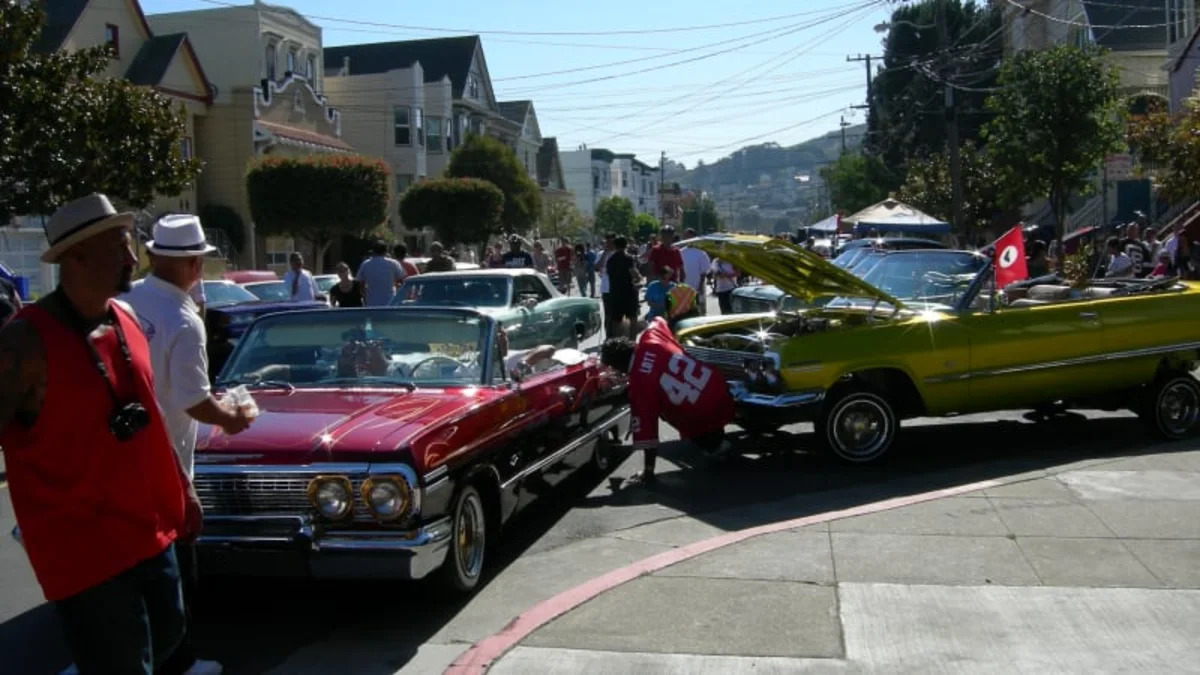Consider this your annual reminder that commuter culture is not the same thing as car culture – and a reminder some aren't aware of the difference. On Wednesday, The Washington Post published a story titled, Cruising toward oblivion: America's once magical – now mundane – love affair with cars. It's like there's one of these pieces every year.
Author Marc Fisher, a senior editor according to his bio, talks to a lot of people about how car culture isn't what it used to be and how kids these days aren't interested in cars. These people tend to be 55 or older, Baby Boomers who are old enough to remember the days before unleaded gas.
In every generation, there has been a large amount of people – probably the majority – who view cars as mere transportation, or "mundane" in Fisher's words. What's different now, however, is that there are more alternatives for those who aren't interested in cars for anything more than getting from A to B.
Sure, fewer teens are dragging their parents to the DMV to get their driver's licenses. You could blame far higher fuel prices, insurance rates, and more severe driving restrictions. Those teens who want to drive, however, still find a way.
People of all ages can still look at cars as pieces of art, with exhibits like a recent Bugatti display at the Mullin Automotive Museum. Cars can be amazing pieces of design, spectacular feats of engineering, or simply appreciated because of what they represent to a group of people.
The act of spending your weekend under your '60s American muscle car with a set of tools at your side, covered in various vehicle fluids, might be graying. If that's what Fisher was getting to, we can understand. But the love of cars isn't fading away in favor of social media, as he asserts. People with Teslas gather in parking lots, or by charging stations, and talk about their cars in the same way Apple Watch owners gather and talk about their fascination.
In 30 years' time, the kids from today might be reminiscing in a parking lot about the Dodge Neon they had in high school, or the Ford Escape that was their first new car. Or the BMW i8 they had a poster of in their room growing up.
Car culture may not equal a group of men in their F-Bodies or Mustangs gathering at a drive-in, but it now includes the men and women in their Saab Turbos, or those in their BMW-era Minis, or that group of Tesla drivers. Changing car culture doesn't necessarily mean a diminishing one.
And if it's becoming more diverse and inclusive, it's probably changing for the better.
Related Video:
Author Marc Fisher, a senior editor according to his bio, talks to a lot of people about how car culture isn't what it used to be and how kids these days aren't interested in cars. These people tend to be 55 or older, Baby Boomers who are old enough to remember the days before unleaded gas.
In every generation, there has been a large amount of people – probably the majority – who view cars as mere transportation, or "mundane" in Fisher's words. What's different now, however, is that there are more alternatives for those who aren't interested in cars for anything more than getting from A to B.
Fisher does use solid statistics to show young people, with their first real jobs and grown-up pants, are not as car-dependent as they used to be. Yes, more young people live in cities where there are alternatives to car ownership, where they don't need to be burdened with that, the Zipcar founder quoted in the Post story says. But just because you don't own a car doesn't mean you can't appreciate one. Ask the 10-year-old with the Lamborghini Aventador poster.Just because you don't own a car doesn't mean you can't appreciate one.
Sure, fewer teens are dragging their parents to the DMV to get their driver's licenses. You could blame far higher fuel prices, insurance rates, and more severe driving restrictions. Those teens who want to drive, however, still find a way.
People of all ages can still look at cars as pieces of art, with exhibits like a recent Bugatti display at the Mullin Automotive Museum. Cars can be amazing pieces of design, spectacular feats of engineering, or simply appreciated because of what they represent to a group of people.
The act of spending your weekend under your '60s American muscle car with a set of tools at your side, covered in various vehicle fluids, might be graying. If that's what Fisher was getting to, we can understand. But the love of cars isn't fading away in favor of social media, as he asserts. People with Teslas gather in parking lots, or by charging stations, and talk about their cars in the same way Apple Watch owners gather and talk about their fascination.
In 30 years' time, the kids from today might be reminiscing in a parking lot about the Dodge Neon they had in high school, or the Ford Escape that was their first new car. Or the BMW i8 they had a poster of in their room growing up.
Car culture may not equal a group of men in their F-Bodies or Mustangs gathering at a drive-in, but it now includes the men and women in their Saab Turbos, or those in their BMW-era Minis, or that group of Tesla drivers. Changing car culture doesn't necessarily mean a diminishing one.
And if it's becoming more diverse and inclusive, it's probably changing for the better.
Related Video:


Sign in to post
Please sign in to leave a comment.
Continue